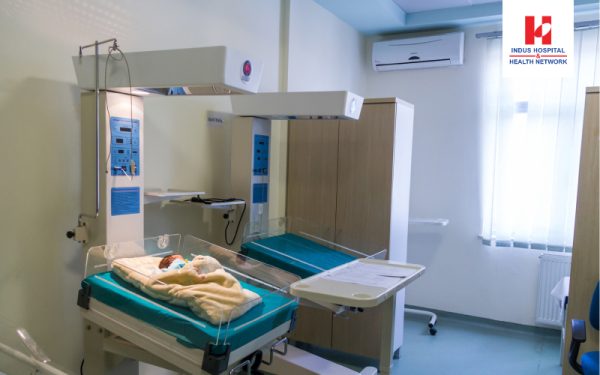THE STRENGTH TO MOVE ON – Naziran Mai
-
by
admin
Sitting at the local shrine near her house, Naziran Mai silently prayed for her unborn child’s safety. She had frequented the shrine since she was a child, but never could she remember a time when she went to the shrine out of sheer desperation. Never before had she prostrated and begged. It had always been to offer thanks, ask for forgiveness, and acknowledge the blessings in her life.
Naziran lived in the small city of Kacha Razi, located in the Rajanpur district of Southern Punjab. The town lacked basic healthcare services, and people often died of treatable diseases. The lack of education and healthcare facilities led people to seek help from medically unqualified spiritual healers, whose lack of knowledge and reliance on outdated techniques and misinformation caused the high fatal statistics.
Naziran had been expecting her third child with her husband, Allah Ditta. But instead of celebrating the momentous occasion, the household was filled with apprehension and unease.
Allah Ditta is a laborer and, aside from a small house he inherited from his parents, possessed minimal assets to his name. He was 25 when he married his maternal aunt’s daughter, and the couple welcomed their first child, a daughter, within their first year of marriage. A local midwife attended the birth, and there were several complications towards the end of her pregnancy. Both mother and daughter suffered severe malnutrition.
Despite the difficulty in going through the first pregnancy, the family pressure of having a son led to Naziran conceiving again after a few months. Naziran was malnourished and developed severe complications again. The lack of access to antenatal care led to the complications turning life-threatening, and the baby tragically passed away. The tragedy didn’t end there, as Naziran developed an infection from the use of unclean equipment at home and lost a lot of blood during the delivery process.
When Naziran got pregnant the third time, she was determined to ensure that her family avoided another tragic episode. After searching and consulting with the locals, she discovered the Indus Hospital & Health Network’s Al-Ghazi Trust Campus in Bhong.
The hospital had just started birthing services, and Naziran registered herself there immediately. During the pregnancy, she had regular antenatal check-ups and got immunized against tetanus for the first time. Once the term was completed, Naziran gave birth to a healthy boy, attended by the trained and highly skilled midwives at the facility. The baby was vaccinated at birth and sent home with a care package to keep it clean and warm for the first few months.
The family was overwhelmed with joy, and for the first time since their marriage, the couple finally could celebrate. Naziran expressed her gratitude to the staff for all their help in saving her family, and once she fully recovered made the journey to her local shrine. She went with her whole family and offered her sincerest thanks. Tragedy had torn the family apart, but the joy of having her son with her would give her the strength she needed to move forward.





